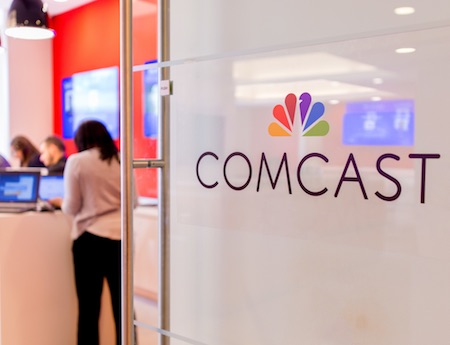Comcast to FCC: Dismiss Estrella TV Complaint

The smarter way to stay on top of broadcasting and cable industry. Sign up below
You are now subscribed
Your newsletter sign-up was successful
In a filing June 7, Comcast has told the FCC that Liberman Broadcasting's (LBI) program carriage complaint related to the MVPD's dropping of three TV stations fails on three grounds: 1) As a broadcast network, Liberman is not authorized to bring a carriage complaint, which is confined to cable networks (Comcast's negotiations were instead covered by must-carry, retrans regime); 2) Comcast's request for digital distribution rights as a condition of carriage is not a demand for a financial interest in Estrella; and 3) the complaint was filed beyond the statute of limitations.
That came in Comcast's response to the April filing of the complaint.
Comcast said it dropped three Estrella TV stations in Houston, Denver and Salt Lake City, rather than pay the fees demanded by the company. Comcast redacted how many of its customers complained about the loss of signal but suggested it was not many. "Without any meaningful customer reaction from losing Estrella TV, Comcast saw no reason to reverse course and put Estrella TV back on the air," it told the commission.
Comcast also pointed out that it continues to carry Estrella TV to millions of customers elsewhere and remains one of its biggest distributors.
Comcast also said LBI has not identified any MVPD, "vertically integrated or not," that is paying LBI fees commensurate to what it asked of Comcast and said LBI has not identified any MVPD who pays it for carriage, period. Comcast says even if it did that would not prove Comcast could justify the expense, but the absence of evidence "reaffirms" there were market-based grounds for Comcast's decision.
Comcast says that, in any event, Liberman has made no prima facie case of discrimination, and its complaint should be rejected. Comcast says the case is nothing more than speculation that Comcast made its carriage decision based on affiliation instead of a "reasonable business purpose," which is insufficient to meet the burden of showing that affiliation was the motivation.
"There is not a shred of direct evidence that Comcast's carriage decision was grounded in any way on the anon-affiliation of Estrella TV or as part of an effort to protect affiliated Spanish-language networks," Comcast told the FCC. "Comcast distributes dozens of non-affiliated Spanish-language and Hispanic-focused broadcast and cable networks, including at least nine it has launched on its systems in the last five years. This does not reflect affiliation-based favoritism but the opposite: Comcast's good faith decision to carry the networks its customers want to watch."
The smarter way to stay on top of broadcasting and cable industry. Sign up below
LBI argues that it has presented "clear and compelling evidence" that Comcast discriminated against Estrella TV to favor its Spanish-language networks, Telemundo and NBC Universo, including by "unlawfully" demanding digital rights. It claims Comcast is in violation both of program carriage rules and NBCU deal conditions.
Liberman wants the FCC to require Comcast to distribute Estrella TV at the same level and compensation as Telemundo.
Comcast says that would be content-based regulation in violation of the First Amendment.
"Comcast’s Answer to Liberman Broadcasting, Inc.’s April 8, 2016 program carriage complaint is predicated on a highly selective and inadequate version of the facts underlying this case, from which Comcast draws erroneous conclusions," Liberman said in a statement. "Comcast relies on law as it wishes it to be, not as it is. LBI is a quintessential Video Programming Vendor fully entitled to the protections afforded by the program carriage statute and regulations, as well as the FCC’s Comcast/NBCUniversal Merger Order. As LBI has demonstrated in the Complaint and will reaffirm in reply to Comcast’s answer, LBI’s timely filed complaint against Comcast is well grounded in fact and law on all counts and warrants relief from the FCC."
Contributing editor John Eggerton has been an editor and/or writer on media regulation, legislation and policy for over four decades, including covering the FCC, FTC, Congress, the major media trade associations, and the federal courts. In addition to Multichannel News and Broadcasting + Cable, his work has appeared in Radio World, TV Technology, TV Fax, This Week in Consumer Electronics, Variety and the Encyclopedia Britannica.

